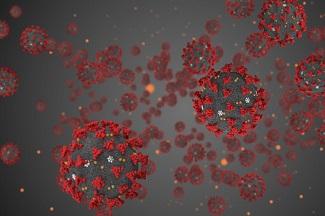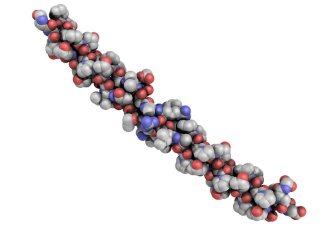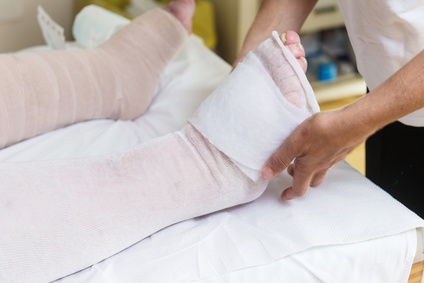Maintaining Skin Health in Older Patients During COVID-19
April 1, 2020
As a response to increasing rates of infection with the novel coronavirus (which causes an illness termed COVID-19), the Centers for Disease Control and Prevention and all major medical organizations are advising individuals to wash their hands thoroughly and frequently and for at least 20 seconds. This step will likely make a tremendous impact on mitigating the spread of COVID-19. Although we don't have current and available data on how effective hand washing will be to stop this specific virus, we do have extensive accurate and reliable data on how much hand washing can reduce the potential transmission of infection. One study found that proper hand washing cut the risk of respiratory infection by 16%,1 and a subsequent study demonstrated a 21% reduction in transmission.2
Hand Washing for Older Adults and Those With Vulnerable Skin
Although frequent hand washing and the use of hand sanitizer may cause healthy persons minimal discomfort, these actions pose a clinical risk for vulnerable and older persons, as well as individuals with existing skin conditions. Hand washing and the frequent use of hand sanitizers in individuals with fragile skin, such as geriatric patients, often interrupts the skin's protective barrier. Skin lesions and tears make it easier for the novel coronavirus to be transmitted by indirect contact.3
Prevention and Treatment of Skin Tears in the Elderly Population
Heightened Risks in Geriatric Patients During the COVID-19 Pandemic
Unfortunately, it's not only COVID-19 that older patients need to worry about; bacterial, viral, and fungal infections all occur more frequently in geriatric patients.4 When chronic wounds, or even acute wounds caused by excessive hand washing, are present, the risk for bacterial and viral infections is elevated. In addition, aging is often associated with a natural dysregulation of immune function, which may be amplified in the context of chronic stress.5 During this pandemic, many clinical challenges must be considered when caring for older patients. With the existing guidance dictating increased hand washing and use of hand sanitizer, geriatric patients are at a higher risk of skin disorders that frequently affect persons with fragile skin, such as dryness, pruritus, barrier degradation, dermatitis, and skin tears.6
Skin Care for Geriatric Patients With COVID-19
COVID-19 may cause fever, sweating, and chills.7 Although treating the viral infection itself should be of top concern to the clinician, the effects of these systemic conditions on the skin should not be overlooked, especially in geriatric patients. Older adult patients are predisposed to certain dermatologic disorders, including inflammatory dermatoses, cutaneous infections, vascular disorders, and neoplasms.8 COVID-19 may exacerbate these pre-existing conditions, particularly moisture-sensitive conditions. In addition, patients with COVID-19 may also have loss of appetite, low energy, and fatigue,8 thus making it especially difficult for them to attend to their skin's needs throughout the duration of the illness. When excessive moisture is present, the skin should be cleansed and dried.
Any wounds that may be present should also be treated using optimal dressings that maintain moisture balance.9 Several elements must be considered when caring for these older patients. For patients not residing in long-term care facilities and hospitals, the key will be promoting social isolation. By limiting contact with others, these patients will not need to wash their hands as often, and this will allow the skin some time to recover. However, complete social isolation may not be an option for many older patients. For these patients, it's crucial to promote clinical strategies that maintain the skin's integrity and reduce other skin manifestations, such as dryness, that may result from increased hand washing and use of hand sanitizers.
Specific Skin Care Measures Found to Be Effective
A systematic review of recent literature found the following measures to be effective6:
- Skin cleansers containing syndets or amphoteric surfactants improved skin dryness compared with standard soap and water.
- Lipophilic leave-on products containing humectants decreased skin dryness and reduced pruritus.
- Products with pH 4 improved the skin barrier.
- Application of skin protectants and structured skin care protocols can decrease the severity of incontinence-related dermatitis.
- Formulations containing glycerin and petrolatum reduced the incidence of skin tears.
These treatment strategies will be essential throughout the COVID-19 outbreak. When skin lesions or tears are present, proper care should also be administered to reduce the risk of viral infection through compromised skin, as well as potential systemic infection. These wounds should be cared for in a manner that optimizes healing and protects the patient as much as possible during this pandemic.
References
1. Rabie T, Curtis V. Handwashing and risk of respiratory infection: a quantitative systematic review. Trop Med Int Health. 2006;11(3):258-267.
2. Aiello AE, Coulborn RM, Perez V, Larson EL. Effect of hand hygiene on infectious disease risk in the community setting: a meta-analysis. Am J Public Health. 2008;98(8):1372-1381.
3. Tao J, Song Z, Yang L, Huang C, Feng A, Man X. Emergency management for preventing and controlling nosocomial infection of 2019 novel coronavirus: implications for the dermatology department. Br J Dermatol. 2020 March 5. doi: 10.1111/bjd.19011. [E-pub ahead of print].
4. Nagaratnam N, Nagaratnam K, Cheuk G. Advanced Age Geriatric Care. Basel, Switzerland: Springer Nature; 2019.
5. Gouin JP, Hantsoo L, Kiecolt-Glaser JK. Immune dysregulation and chronic stress among older adults: a review. Neuroimmunomodulation. 2008;15:251-259.
6. Lichterfeld-Kottner S, El Genedy M, Lahmann N, Blume-Peytavi U, Buscher A, Kottner J. Maintaining skin integrity in the aged: a systematic review. Int J Nurs Stud. 2020;103:103509. doi: 10.1016/j.ijnurstu.2019.103509.
7. Tan J. Coronavirus – what you need to know. a.vogel.co.uk. 2020. https://www.avogel.co.uk/health/immune-system/flu/coronavirus-what-you-…. Accessed March 23, 2020.
8. Wey S, Chen D. Common cutaneous disorders in the elderly. J Clin Gerontol Geriatrics. 2010;1(2):36-41.
9. LeBlanc K, Baronoski S, Christensen Det al. The art of dressing selection: a consensus statement on skin tears and best practices. Adv Skin Wound Care. 2016;20(1):32-46.
The views and opinions expressed in this blog are solely those of the author, and do not represent the views of WoundSource, HMP Global, its affiliates, or subsidiary companies.













Follow WoundSource
Tweets by WoundSource